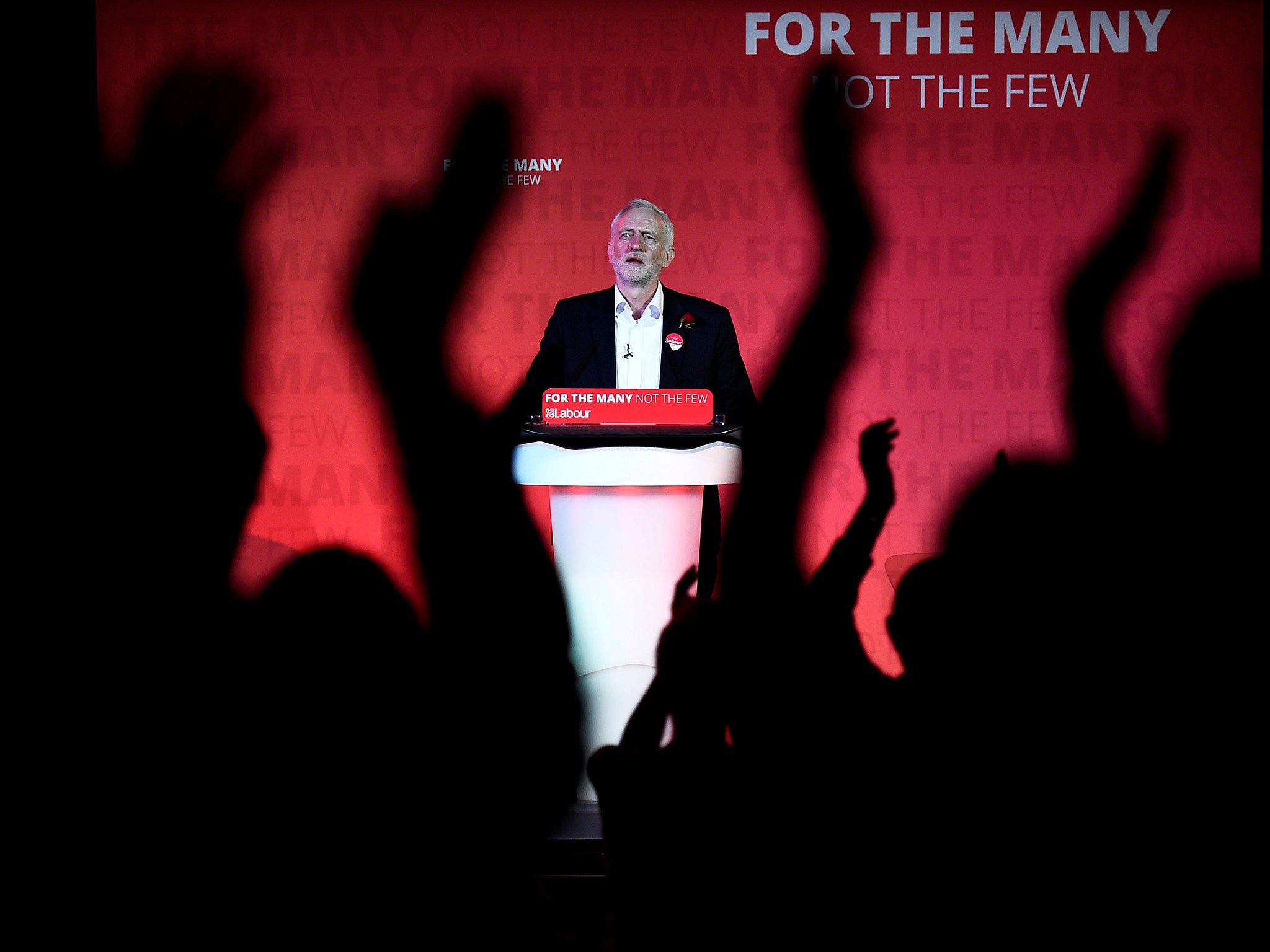Labour could win the next general election – but only if we keep fighting just as hard
YouGov has Corbyn and May polling neck and neck when voters are asked which would make the best Prime Minister. No Labour leader has been level or ahead of a Conservative on this question since 2008

It’s true that Labour did not win the general election. It’s the Conservatives who got the most seats, and who might be able to form a Government – if they manage to pull off an immoral, desperate deal with the anti-LGBT rights, anti-abortion, terrorist backed Democratic Unionist Party.
The Tories jumped the gun and announced an arrangement yesterday, only for the DUP to immediately contradict them. Leader Arlene Foster is apparently meeting Theresa May to discuss matters on Tuesday. It makes sense that the extremely religious, Protestant, right-wing party might want to take a break from negotiations on Sunday, but it’s hard to interpret an extra day’s delay as anything other than a deliberate power play.
Any formal alliance between the two parties also contravenes the terms of the Good Friday agreement, which requires the UK Government to be a neutral broker. Sinn Fein have already issued a statement making this point, and it seems Theresa May’s planned course of action could represent a serious threat to stability in the region.

Not that she has many other options. The one alternative route to a majority would be a supply and confidence agreement with the Liberal Democrats – but it’s not clear whether they’d actually agree to it. The party was punished by voters for going into coalition between 2010 and 2015. Supply and confidence might be subtly different but there’s a strong chance it will be interpreted as a betrayal. If they did agree to prop up a Conservative minority Government, it would probably be on the promise of a second EU referendum. And making that vow would cause serious problems for the Tories.
What I’m trying to say is: it’s quite likely there is no way this can work. Either the Conservatives will find it impossible to strike any sort of deal whatsoever, or the arrangement they come up with will be so flimsy it rapidly falls apart. Another election could be on the cards within the next few months. And the Tories will go into it looking broken, incompetent and in decline. Some of their strongest campaign lines – about the necessity of “strong and stable Government” to secure the best Brexit deal – now sound like jokes.
Labour might not have won the most seats this time, but its increase in vote share was still remarkable. A 9.6 per cent swing means that Corbyn has done more to improve the fortunes of his party than any leader since Attlee. Many seats that were considered unwinnable for Labour have become marginals with Conservative majorities in the hundreds or low thousands. Some Tory strongholds have already been taken: including affluent Kensington, and Canterbury, which has consistently returned Conservative MPs for over a century. A further swing of just 3.57 per cent will see Labour winning an outright majority, taking 64 seats.
What’s more, the party’s popularity only continues to rise. Survation, one of the polling companies that most accurately predicted the election result, currently has it on 45 per cent – a full six points ahead of the Conservatives. Even more encouragingly: YouGov has Corbyn and May polling neck and neck when voters are asked which would make the best Prime Minister. No Labour leader has been level or ahead of a Conservative on this question since 2008.
People mocking Labour supporters for celebrating a loss simply don’t understand the shift that has occurred. Last year, many were worried their party would be destroyed by factional infighting. Now there’s a very realistic prospect it could be in Government within the year.
It’s important those of us on the left don’t treat such a result as a foregone conclusion, though. This election result was possible because Labour dared to offer a bold, hopeful vision for the future. But it also depended on the hard work and dedication of an army of activists, spreading this positive message as most of the mainstream media attacked Corbyn and other senior Labour figures in every conceivable way. We can win next time – but only if we fight just as hard again.
Join our commenting forum
Join thought-provoking conversations, follow other Independent readers and see their replies
Comments
Bookmark popover
Removed from bookmarks